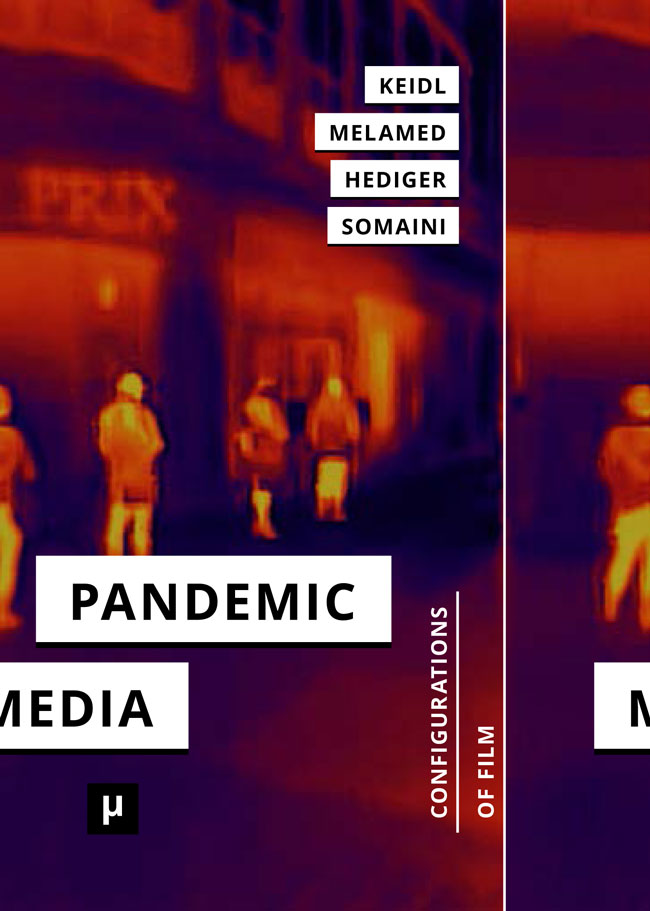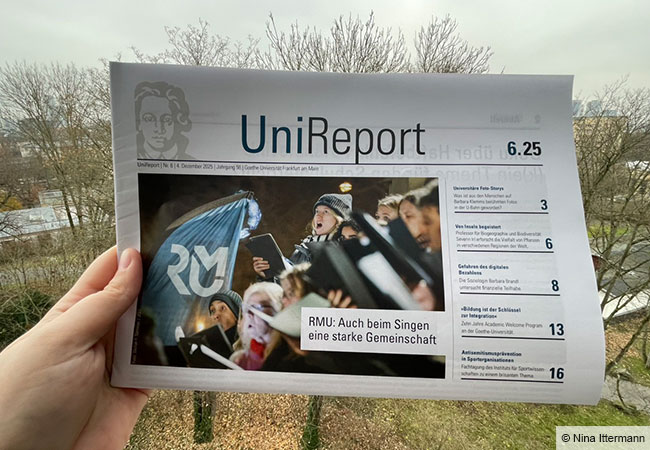With the onset of the current pandemic, our lives have become more digital and more mediatized than ever before. But how can we understand this transformation, and how can we envision our lives in this “new“ media world? A new publication edited by a group of media scholars working in Frankfurt offers a glimpse of some of the research questions and challenges to come.
The current pandemic poses a particular challenge for film and media scholars. COVID-19 changes not just their work routines but transforms their very object of study: the media. “As a consequence of the pandemic, we have to adapt ourselves to new conditions of producing, accessing, consuming, sharing, and deploying media for the flow of information, labor, goods, policies, and culture”, says Laliv Melamed, post-doc researcher in the Graduate Research Training Program “Konfigurationen des Films” (www.konfigurationen-des-films.de). Together with her colleague Phillipp Keidl, Melamed has initiated and co-edited the collection “Pandemic Media”, which appears as an open access publication this week.
“‘Pandemic Media‘ is an attempt to meet the challenges of the pandemic with a series of flashlight essays which address current and future research questions in media studies”, says professor Vinzenz Hediger, project director of “Konfigurationen des Films”. In that spirit, the publication’s subtitles is “Preliminary Notes Towards an Inventory”.

The temperature of the pandemic: The book cover is based on a photo by Magnum photographer Antoine D’Agata, who has been documenting Paris street scenes and hospital processes with a heat-sensitive camera since April (Credit: Cover (c) meson press/Mathias Bär/Antoine D’Agata)
“Pandemic Media“ brings together 37 contributions from the scientific network of “Konfiguration des Films” – a network that is truly global. Contributors include researchers working at universities in New York, Stanford, Toronto, Seattle, Oxford, London, Lagos, Utrecht, Frankfurt, Weimar or Paris. The diversity of the contributors is reflected in the variety of their topics and perspectives: These include the now ubiquitous drone images, the split-screen aesthetics of video conferencing software, dating apps, Trump’s television strategy against COVID, visualisations of the virus or the development and implementation of the COVID tracing app in Germany.
The publication’s cover is based on the current work of MAGNUM photographer Antoine D’Agata, who has been documenting the impact of the pandemic in Paris streets and hospitals with a heat sensor camera. D’Agata’s eerily suggestive images, which are on display at the Brownstone Foundation in Paris until the end of October, are also the subject of one the contributions to the volume.
Among “Pandemic Media”‘s innovations is the digital open access publication strategy, which allowed the editors to put the project in the short space of four months. All contributions underwent a two-step double blind peer review process. The project director of “Konfigurationen des Films“ and Professor Antonio Somaini, who teaches at Université Paris-3 and is also a partner of Goethe University in the International Master Cinema Studies (IMACS, www.imacsite.net) serve as co-editors.
The publication date for the 37 contributions and the introduction is 28 October 2020. “Pandemic Media“ is the latest volume in the „Configurations of film“ series published by meson press. The full publication can be accessed here: https://meson.press/books/pandemic-media/, first in html format, later as PDF files for download. The publication will be available in book form in time for the holidays.
Meson press is an innovative new publisher specializing in open access publications on digital media culture. “From our point of view, ‘Pandemic Media’ is an exciting pilot project”, comments Andreas Kirchner, co-founder and co-director of meson press. “Not only does the volume perfectly fit our profile, it offers us an opportunity to experiment with groundbreaking new publication formats.”
The Graduate Research Training Program “Konfigurationen des Films“, which is funded by the Deutsche Forschungsgemeinschaft (DFG), has been studying the digital transformation of film culture since 2017. This summer, the second cohort of 12 doctoral candidates has assumed their positions and started their research projects.
Publication: „Pandemic Media. Preliminary Notes Towards an Inventory“, published by Vinzenz Hediger, Philipp Keidl, Laliv Melamed und Antonio Somaini
Further information:
Dr. Philipp Keidl
Graduate Research Training Program „Konfigurationen des Films“
keidl@em.uni-frankfurt.de
Dr. Laliv Melamed,
Graduate Research Training Program „Konfigurationen des Films“
melamed@tfm.uni-frankfurt.de
Prof. Dr. Vinzenz Hediger
Speaker of the Graduate Research Training Program „Konfigurationen des Films“
hediger@tfm.uni-frankfurt.de







